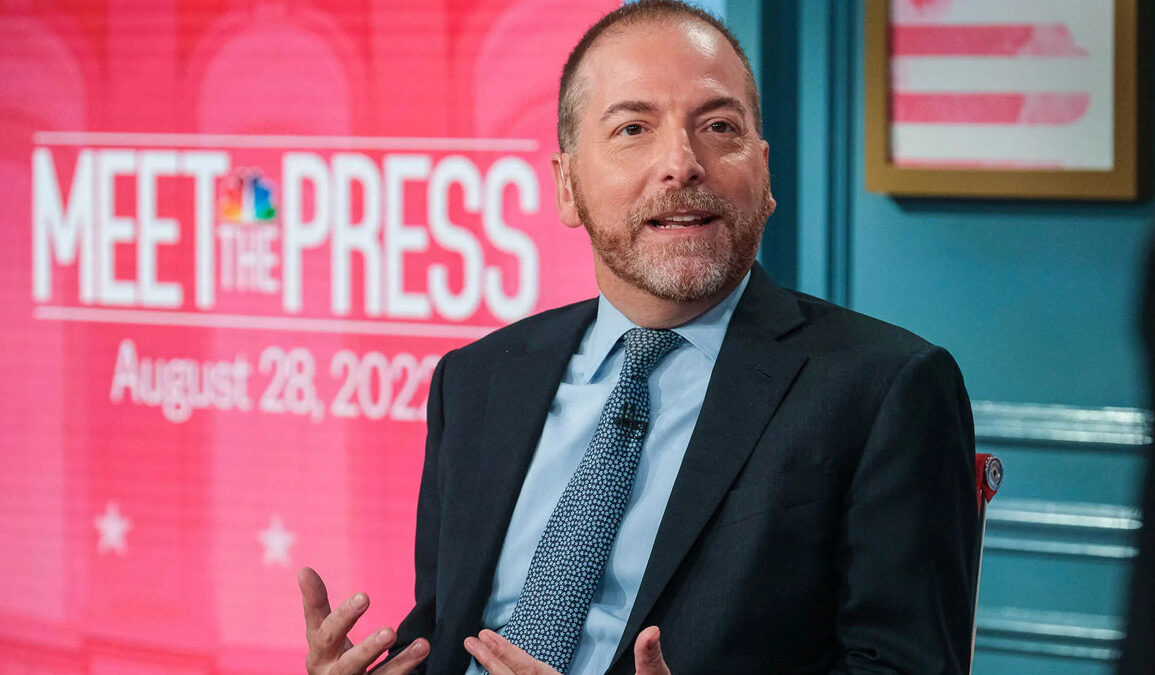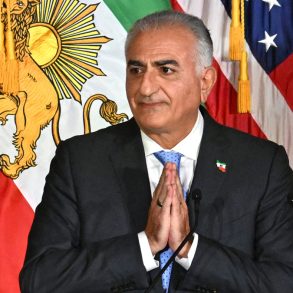Former “Meet the Press” host Chuck Todd now calls de-platforming Donald Trump “the biggest mistake legacy media made.” In a Newsmax interview, he argued that the post–January 6 bans on Trump and the shunning of lawmakers who would not certify the 2020 results “made everything worse” because “we have now completely different ecosystems, and that is less healthy for the system than anything else.” He described what he saw inside newsrooms as an “unofficial pressure campaign” to avoid interviewing January 6 objectors, a choice he labels “a core mistake of the intelligentsia of the left.”
Todd says the fix is to put arguments back in the open and test them instead of blocking them. “Ultimately, all you have is your own personal credibility,” he said. “You stick with your facts. I’m not here to tell you to drink the water; my job is to lead you to the stream.” He added that if journalists can sit with adversaries abroad, they can interview domestic figures they dislike: “If I’m willing to sit down with Vladimir Putin or the president of Iran, you’re telling me you can’t interview somebody who voted not to certify on January 6th?”
What de-platforming was intended to do
Supporters of the bans said they were necessary after January 6 to reduce immediate harms. The aim was to stop false claims from spreading, lower the risk of incitement, and blunt Trump’s reach by removing him from his most powerful distribution channels. The hope was that less visibility would mean less influence and a cooler national mood.
Writers who studied the fallout warned early that the ban did not change the deeper political currents. Casey Newton concluded that nearly a year later “his power has arguably only increased.” He noted that Trump still drove the news with “tweet-like press releases,” frequent TV appearances, rallies, and a new media venture, while also promoting a nationwide push to change election rules. Newton wrote that removing Trump “almost certainly prevented real harms,” but “did little to improve the underlying political situation,” which he said was “getting worse all the time.”
Vox’s Zack Beauchamp framed it as a failure of gatekeeping. He argued that the 2024 cycle “conclusively proven” what should have been clear since 2016: “America’s gatekeepers have failed.” Gatekeeping relies on elites declaring topics or people out of bounds and expecting the rest of society to follow. In his words, “Trump’s wins are proof that gatekeeping doesn’t really work anymore.”
Todd’s diagnosis of the media’s credibility problem
Todd links the bans to a larger credibility slide. He says legacy outlets replaced dialog with exclusion. “You may not want to platform these folks, but half the country did,” he said. “You’re supposed to be covering what that is.” He also faults big media owners for caving to political pressure instead of defending free expression. In his longer reflections, he called recent government pressure on broadcasters “sadness,” adding, “The law is on the side of the media companies, and they just don’t want to use it.”
The split into parallel ecosystems
Todd’s core claim is that exiling Trump did not shrink his coalition. It hardened it somewhere else. In his words, “De-platforming Donald Trump from Twitter and Facebook was a mistake. There’s an entire new ecosystem that exists that’s created their own reality. And this is now the damage that we’re all facing.” Newton describes that world as thriving through alternative channels that do not depend on a single platform.
Trump’s detractors have argued in the past the bans were justified by his behavior and by safety concerns. They supported a collective move to shun people who would not certify the election. Todd now says that collective shunning traded journalism’s core tools for a tactic that backfired. Instead of tough, on-air questioning, the public saw a blacklist mentality. He points out that many in media also resisted pressing Democrats on sensitive issues such as President Biden’s age even though, as he put it, “internal polling consistently showed public concern.” To audiences, that felt like taking a side.
Todd says mockery replaced argument. He notes that “uninformed media critics” preferred jokes about his interviews to engaging with the journalistic case for long, probing follow-ups. He singled out the late-night and satire culture that “poked fun” at him for being too light, while he insists, “I’ve always said the most important questions are the follow-ups.” That tone, he argues, sent a message that some people should not be heard at all, which undermines free speech norms and pushes millions of voters out of the conversation.
Results on the ground
Both Todd and outside observers describe a country drifting further apart. Newton highlights that after the bans, the political project around Trump continued and in some ways deepened. Beauchamp notes that attempts to police speech from above did not move public behavior. Survey work described in reporting that Newton cites found that “21 million Americans could plausibly be described as ‘committed insurrectionists,’” illustrating that the challenge is broader than one account on one site.
Todd’s prescription is to do the work in public. “Some of us are swimming in the middle of this stream,” he said, rejecting the idea that every journalist must choose a side. He argues for interviewing consequential actors, pressing them with facts, and letting audiences watch the claims get tested. He sees engagement as the path back to trust: rebuild local reporting, show your methods, and stop acting like gatekeepers for half the country.
NP Editor: Chuck Todd is a hypocrite of the highest order, pretending that he is above it all and describing the mistakes of his brethren. In reality he was as anxious to stifle speech from Trump as anyone – just another liberal asshole making excuses for his own behavior.








